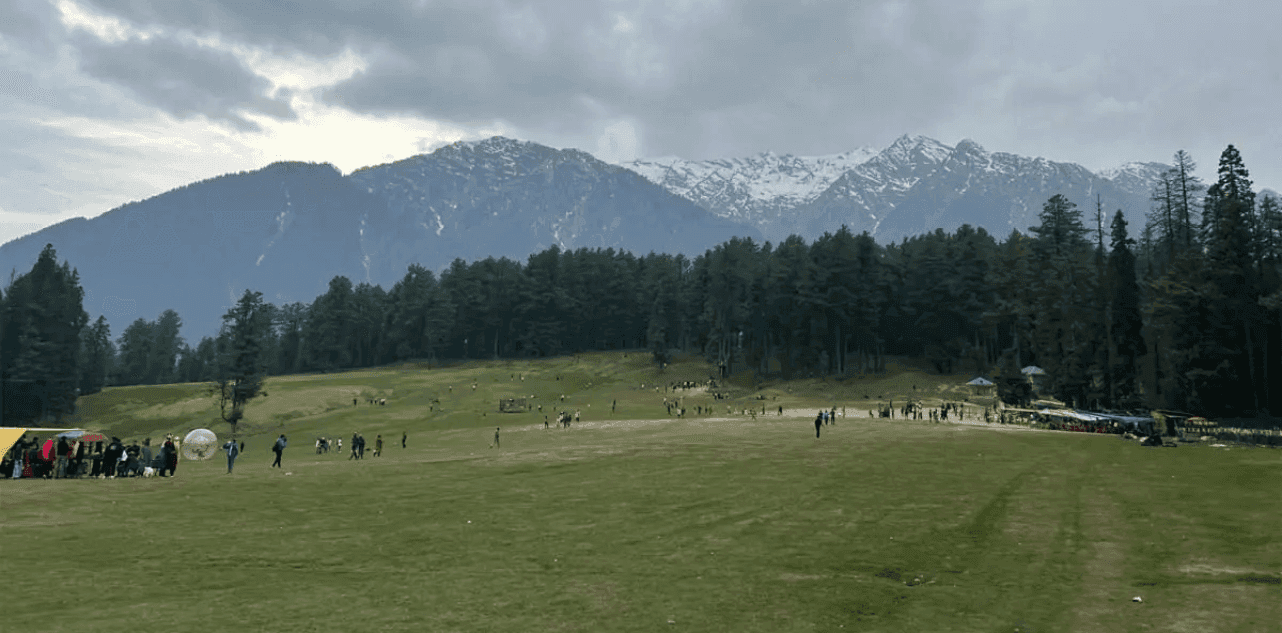Monday 16 February 2026
Why Were There No Soldiers At Pahalgam? Asks Opposition. Centre Answers
Share

In a high-level all-party meeting convened on Thursday evening, the Opposition sharply questioned the central government over the recent terror attack in Pahalgam, Jammu and Kashmir, which claimed the lives of 26 civilians. The meeting was held under the leadership of Defence Minister Rajnath Singh and Home Minister Amit Shah, following the government's announcement of a series of retaliatory measures against Pakistan.
The gruesome attack, which occurred in the tourist meadow of Baisaran near Pahalgam, has raised serious concerns about the preparedness and coordination of security agencies. The Opposition demanded accountability and clarity from the Centre regarding the apparent lack of security in the area at the time of the incident.
In response to the attack, the central government rolled out a suite of tough measures aimed at sending a clear and forceful message to Pakistan. Among the most notable actions were the downgrading of diplomatic relations, the expulsion of Pakistani military attachés, and the closure of the Attari land transit point — a key gateway for people and goods between the two nations.
Additionally, the government announced the suspension of the 1960 Indus Waters Treaty, a long-standing agreement that governs the sharing of river waters between India and Pakistan. This move, though largely symbolic given India’s current storage limitations, was described as a strong political and strategic gesture aimed at showcasing India's resolve in the face of escalating hostilities.
During the meeting, several senior leaders from the Opposition, including Congress leader Rahul Gandhi, Leader of Opposition in Rajya Sabha Mallikarjun Kharge, and AAP MP Sanjay Singh, demanded to know why no security personnel were present in Baisaran at the time of the attack. The area is a well-known tourist destination and a key resting point for pilgrims during the annual Amarnath Yatra.
The government responded by explaining that the deployment of security forces in Baisaran typically begins ahead of the Amarnath pilgrimage season, which starts in June. It is during this time that the region is formally opened to pilgrims, and security arrangements are ramped up accordingly.
According to the Centre, several local tour operators allegedly began escorting tourists to Baisaran from April 20, well before the designated security measures were in place. The government maintained that the local administration had not been informed about the early resumption of tourism, which is why no forces had been stationed there at the time.
Another point of contention during the meeting was the government’s decision to suspend the Indus Waters Treaty. Several Opposition leaders questioned the practicality and impact of this move, particularly in light of India's limited water storage infrastructure, which could hamper the country's ability to effectively utilise the waters without violating the treaty.
Responding to these concerns, government officials emphasised that the suspension was meant to serve as a political signal rather than a tactical solution. “This action is a symbolic move to indicate the government's firm stance. It underscores the seriousness with which we view the current security threats and highlights our commitment to taking hardline steps if needed,” an official stated.
The meeting featured a comprehensive security briefing delivered by Intelligence Bureau Director Tapan Deka. His 20-minute presentation covered the sequence of the Pahalgam attack, intelligence reports leading up to the incident, and the response efforts initiated in its aftermath.
The all-party gathering witnessed participation from a broad spectrum of political representatives. Apart from senior BJP leaders like JP Nadda, who is both the BJP President and Leader of the House in Rajya Sabha, the meeting also included prominent figures such as Supriya Sule (NCP-SP), Praful Patel (NCP), Sasmit Patra (BJD), Shrikant Shinde (Shiv Sena), Premchand Gupta (RJD), Tiruchi Siva (DMK), and Ram Gopal Yadav (SP).
This meeting marked one of the most critical junctures in recent parliamentary engagement on national security, with clear lines drawn between the Opposition's demand for accountability and the government's assertion of strategic intent.
Newsletter
Stay up to date with all the latest News that affects you in politics, finance and more.